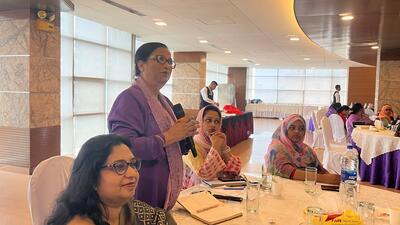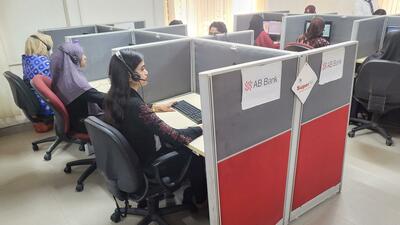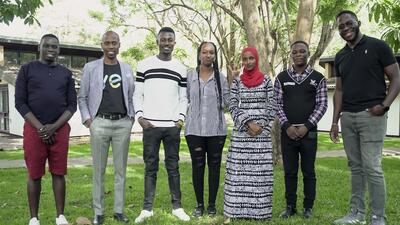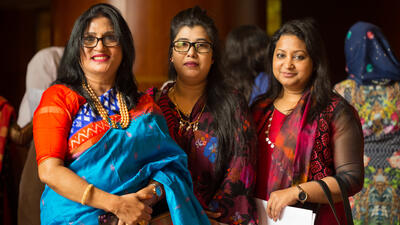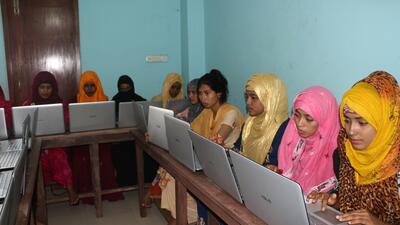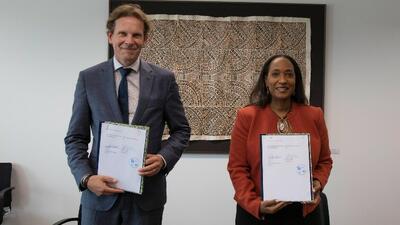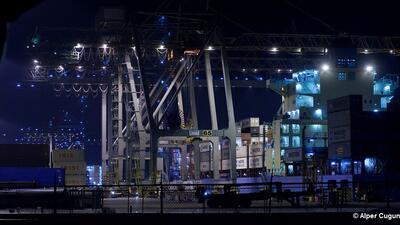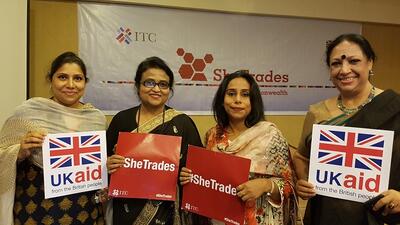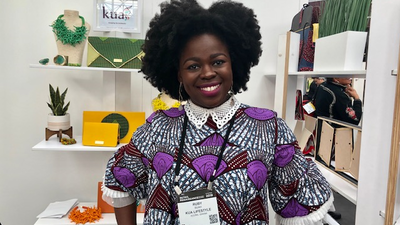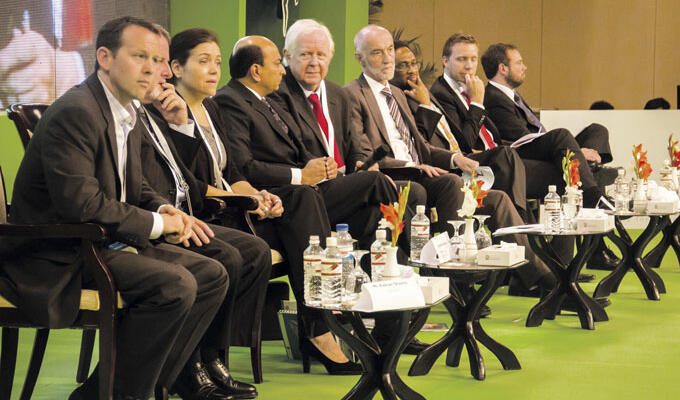
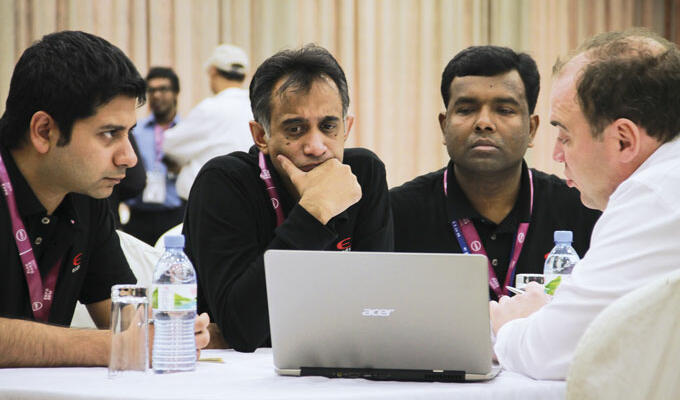
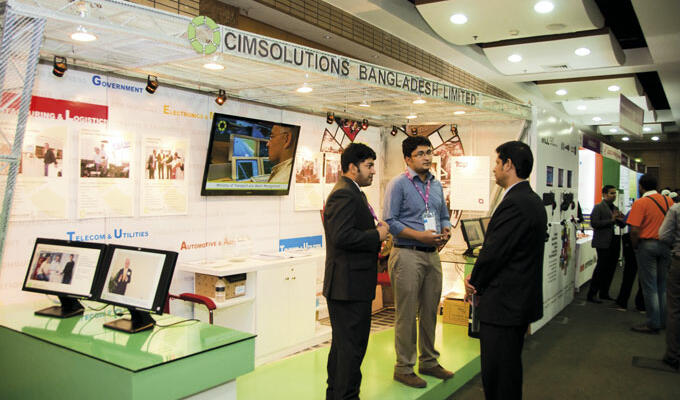
Bangladesh’s IT companies find new clients
Dutch businessman Gerard Spin’s decision to attend Bangladesh’s SoftExpo 2012 trade fair – the country’s largest showcase for software and information and communications technology – proved to be very beneficial for his company, Parkingware BV, which manufactures automatic number plate recognition systems.
At the fair, Spin was able to hold business-to-business meetings with representatives of some 20 companies, organized by ITC’s NTF II Bangladesh project. As a result, he signed contracts with two Bangladeshi IT companies that were in a position to provide top-quality programming to his firm: Structured Data Systems Ltd. and Synesis IT Ltd. Both Bangladeshi businesses credit NTF II Bangladesh for helping them win their contracts with the Dutch firm and enabling them to gain a foothold in the global IT market. This sort of success story resonates among the other 40 Bangladeshi companies specializing in IT and ITES that were selected to take part in the project.
The Dutch Ministry of Foreign Affairs funded the US$ 2.1 million NFT II Bangladesh project through the Centre for the Promotion of Imports from developing countries. It responds to Bangladesh’s goal of promoting the country as the next outsourcing destination and establishing long-term, sustainable relationships with businesses in European markets, such as Denmark, Germany, the Netherlands and the United Kingdom. ITC selected 40 Bangladeshi companies that were already exporting or had the potential to do so to participate in business-linkage and matchmaking events held annually in Europe. They received coaching on export marketing, help in improving their promotional materials and access to a new catalogue and online directory containing vendors’ profiles, which are used to market IT and ITES offerings in European countries. Participation of beneficiary companies is subject to an annual renewal process to confirm that they are committed to the project: eight companies were replaced in 2012.
TSIs play a key role in making connections, so NTF II Bangladesh has forged a close partnership with the Bangladesh Association of Software and Information Services (BASIS) and the Dhaka Chamber of Commerce and Industry (DCCI) to provide business-linkage services that benefit SMEs. TSI staff are trained and coached so they manage the services effectively, carry out demand-side analysis for the new offering and forge strong ties with counterparts in the European markets. In due course BASIS and DCCI will take over the whole process.
‘NTF II Bangladesh assisted Synesis in many aspects – especially to know the European market, positioning mechanism, market behaviour and its culture – through varieties of training, matchmaking events, seminars, workshops and international trade fairs,’ reported Shohorab Ahmed Chowdhury, Managing Director of the Dhaka-based company. ‘Synesis has participated in most of the events and programmes arranged by NTF II Bangladesh and obtained maximum benefit out of it. NTF II gave Synesis a platform to sell its local success stories to European companies. Synesis, which started six years ago with seven people, today employs more than 125 professionals.’ Chowdhury added: ‘NTF II is not a trust fund only; it has become a trusted friend.’
With an economy that has expanded by an average of more than 6% annually in the last five years, Bangladesh is considered to be one of 11 countries likely to follow the BRIC countries in leading global growth. Still, while the country’s ITES sector offers a large pool of highly trained engineers, the industry currently contributes only marginally to the country’s exports. The NTF II project was created to help fill that gap by improving export competitiveness and helping IT and ITES companies build business links with markets in Europe.
A.K.M. Golam Murshed, who leads Structured Data’s project management team, said that the company had worked with clients from the United States, Australia and South Africa since its founding in 1994 and was considering how to expand its business to Europe when it was chosen in early 2012 to join the NTF II Bangladesh project. ‘This was a perfect opportunity to get introduced to the European software development market,’ he said.
Since signing on with the project, Structured Data has improved its website, updated its company profile, prepared an international-standard marketing brochure and developed better understanding of Europe’s IT market and culture, and marketing channels. In addition to its work for Parkingware BV, the company has won contracts with two Danish IT companies, successes which founder and Managing Director Reffat Zaman said are directly connected to its involvement in the project’s events.
‘The matchmaking meetings – and ensuring that the needs of both the Bangladeshi companies and their potential European customers are met – are critical to the success of the programme,’ according to NTF II Bangladesh Project Manager Martin Labbé. ‘If you want to access the European IT sourcing market in today’s very competitive environment, you need to select the right participants on the Bangladeshi side and match them with potential clients who have been identified in a lengthy and thorough networking process,’ Labbé continued. ‘Before the two sides actually met, we made sure the marketing materials of the Bangladeshis were up to speed. The emphasis we put on improving their web-marketing set-up, which is a cost-effective and an obvious communications channel in the IT business, paid off particularly well.’
By November 2012, NTF II Bangladesh beneficiary companies had won a total of 19 contracts, the bulk of which are ‘repeat business’, in which developers are hired on a monthly basis over a year or more. About 40% of the 40 beneficiary companies have signed contracts under the NTF II project.
Gerard Spin of Parkingware BV said that while he has had contact with Indian IT companies, he’s now sold on Bangladesh. ‘I was really impressed by the knowledge level and how driven these people are,’ he concluded. ‘There is still a lot of work to do, but the Internet gives them access to a new world. We would like to be part of that.




